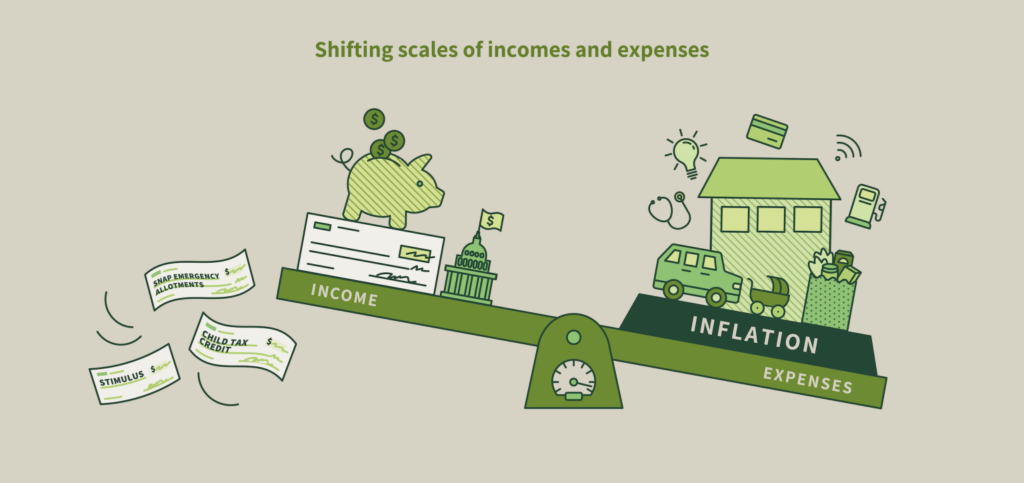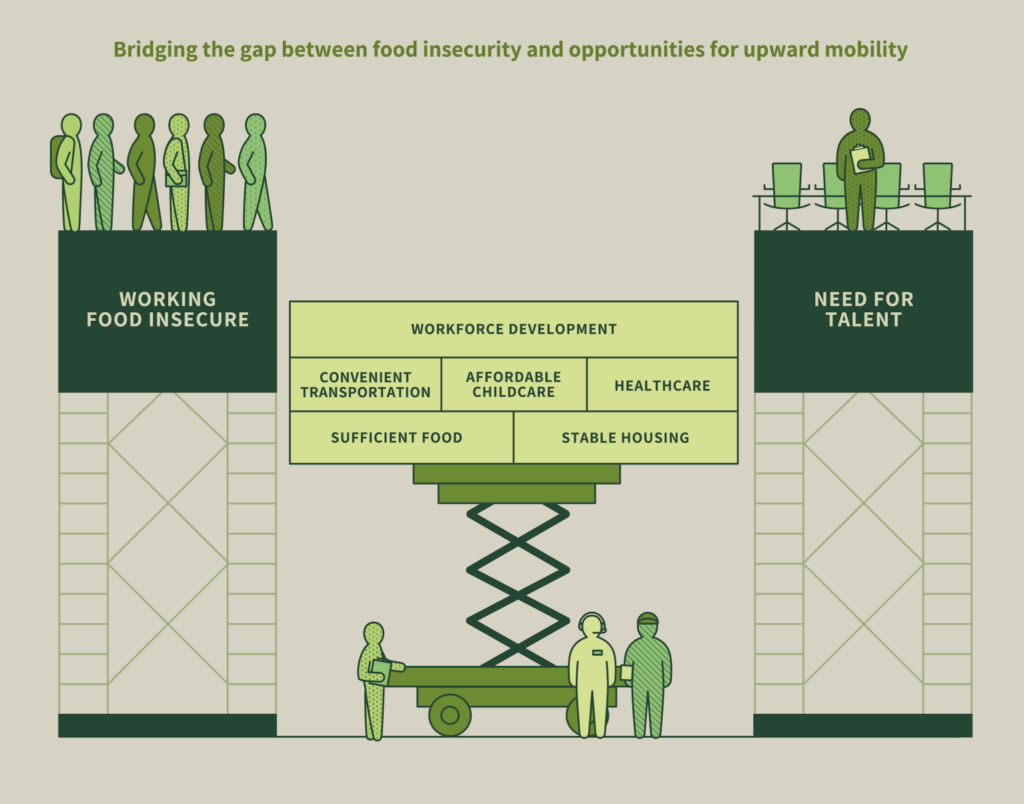The latest numbers from the Capital Area Food Bank 2024 Hunger Report show that 37% of households in our area experienced food insecurity in the past year. This is a jump of 5 percent from the year before, and the highest rate we’ve ever seen. This dramatic increase reflects the national trend noted in the USDA Household Food Security report, which cites that 13.5% of households now face food insecurity, up from the previous year.
As we navigate through this time of unprecedented economic hardship, the growing issue of food insecurity in our community has become impossible to ignore. We’ve seen the cost of everything, from groceries to housing, rise dramatically. Families who never thought they’d struggle to afford nutritious food are now facing tough choices between food and other essentials like rent, transportation, childcare, and medical care. Often, food is the first thing that gets cut when money gets tight.

This crisis is driven by cutbacks to key government programs that helped families during the pandemic, ongoing employment hardship, and inflation. With programs and support systems cut, the average paycheck in our region stretches 9.5% less than it did just four years ago. As a result, one in five households earning as much as $120,000 annually in Greater Washington are now experiencing food insecurity, highlighting how even middle-income families are feeling the squeeze. Food insecurity isn’t just about food. It’s a symptom of a much bigger problem of financial insecurity.
Hunger Report 2024: Chelsi’s Story
Moreover, people with college degrees, those who feel like they did “everything right”, are struggling to meet their food needs. Nearly one third of the food insecure population in the Greater Washington area has a college degree, and 76% of people who are food insecure are working, but their paychecks just can’t keep up with the rising costs. Essentially, a college degree or a job are not enough to prevent food insecurity.
But there are steps we can take together as a community to help address the food insecurity crisis in the DMV. The Capital Area Food Bank recommends focusing on the following key areas to strengthen our local food systems and support those in need.
- Advocate to maintain and strengthen federal programs that support food security
- Push for the adoption of state-level policies that expand food access
- Support programs and policies that address economic hardship holistically
- Invest in upskilling the food insecure population
- Increase the accessibility of the emergency food assistance network
Please join our Tuesday, October 15th Food Security Community call to discuss the state of hunger locally in Montgomery County. Using information from this report and following these recommendations, we can further advocate for the families in our community that are facing these impossible choices every day. Register for the call here.
